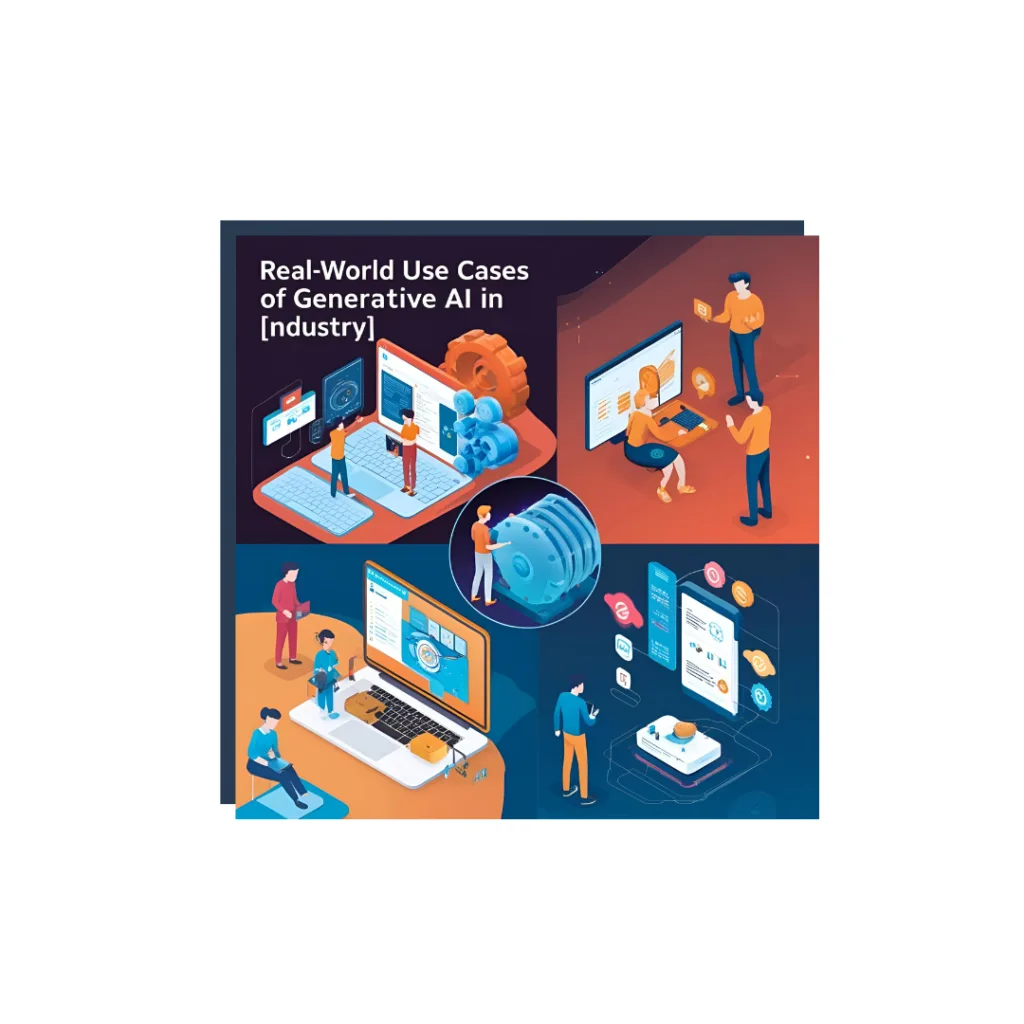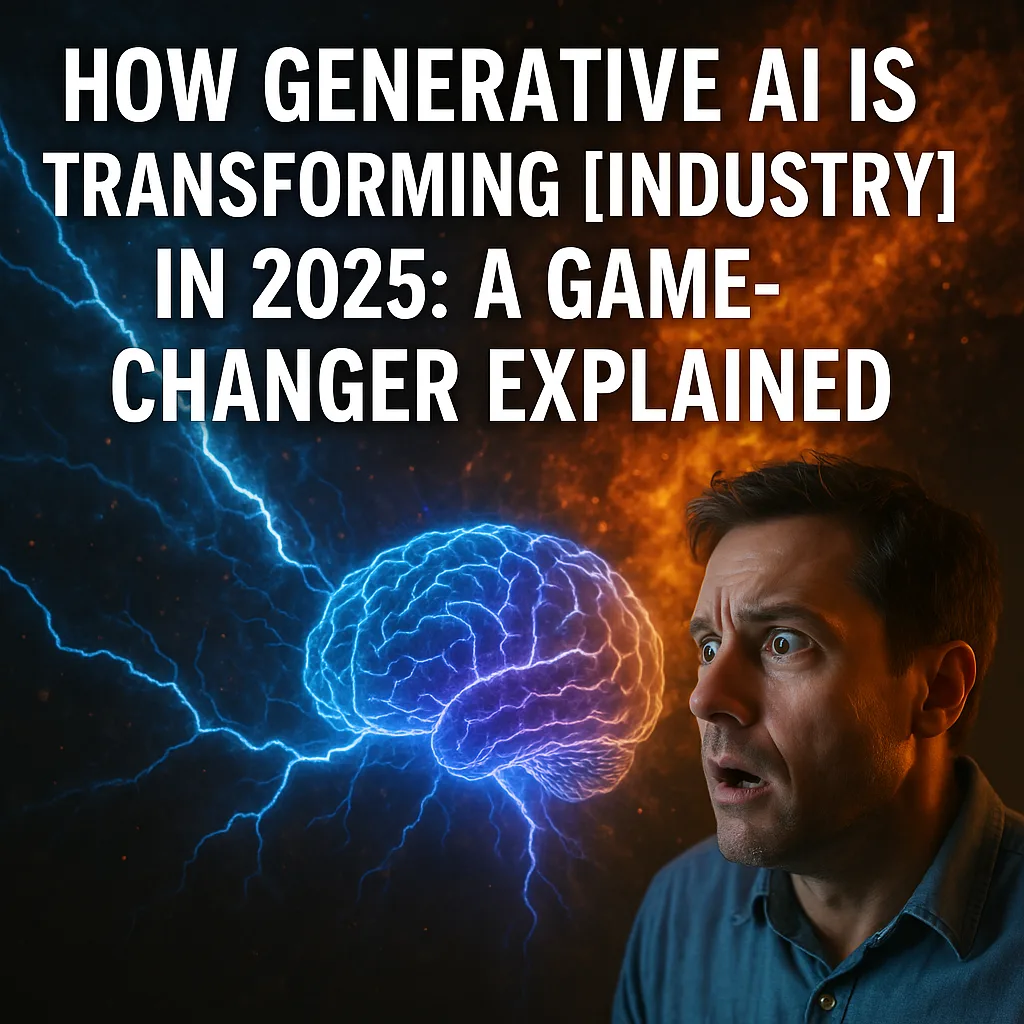Introduction
Generative AI has rapidly evolved from a futuristic concept into a powerful tool that is transforming industries worldwide. In 2025, its impact is more profound than ever. It’s driving innovation, efficiency, and new possibilities across sectors like healthcare, finance, marketing, and travel. For example, IBM’s Watson is a prime example of how AI is revolutionizing healthcare.
In this article, we will explore how Generative AI is revolutionizing [Industry], real-world applications, key benefits, and what the future holds.
Understanding Generative AI’s Role in [Industry]
Generative AI refers to AI models that can generate text, images, code, videos, and even human-like conversations. Tools like OpenAI’s GPT, DALL·E, and Google’s Gemini are already making waves in automation and content creation. In [Industry], this technology is leveraged to enhance productivity, reduce costs, and improve decision-making.
Key Ways Generative AI is Transforming [Industry]
- Automation & Efficiency: AI tools automate repetitive tasks, saving time and reducing human effort. For instance, AI chatbots like ChatGPT help streamline customer support in the service industry.
- Enhanced Creativity: AI aids in content generation, personalized recommendations, and idea brainstorming, helping creative professionals.
- Cost Reduction: AI cuts operational costs by automating tasks that previously required large teams, which leads to better resource allocation.
- Data-Driven Insights: AI analyzes vast amounts of data to deliver valuable insights, helping businesses make data-backed decisions.
- Personalization: AI enhances customer experiences by offering tailored recommendations and responses. For example, AI is already helping online retailers like Amazon personalize shopping experiences.
📖 Related Read: How AI is Shaping Work Productivity in 2025
Real-World Use Cases of Generative AI in [Industry]

1. [Industry-Specific Example 1]
Generative AI is being used in [Example – e.g., marketing, finance, or travel] to automate content creation, predict trends, and enhance efficiency. AI is helping companies streamline their operations by automating routine tasks.
💡 Example: [Example company] has successfully integrated AI to improve customer engagement by 40% using AI-generated content.
2. [Industry-Specific Example 2]
Another area where AI is making a difference is [Example – e.g., fraud detection, customer service automation, supply chain optimization]. For example, in the banking industry, generative AI tools help detect fraud and improve compliance by analyzing patterns in transactions.
✅ Case Study: [Company name] implemented AI for predictive analytics, reducing errors by 60%.
📌 Want to see AI in action? Check out how AI is revolutionizing travel planning.
Challenges & Ethical Concerns
Despite its benefits, Generative AI comes with challenges:
- Bias in AI models leading to unfair or inaccurate results.
- Data privacy risks and cybersecurity concerns.
- Job displacement due to automation.
- Regulatory issues surrounding AI ethics and compliance.
Organizations, however, are developing guidelines to ensure that AI is used responsibly. This includes working with policymakers and experts in the field to address ethical concerns. For example, Google AI Ethics is one such initiative.
Future of Generative AI in [Industry]

By 2030, experts predict that Generative AI will be integrated into 80% of industries, with advancements in AI-driven automation, real-time decision-making, and hyper-personalization. This means we will see even more integration of AI across day-to-day business activities.
🚀 Upcoming Innovations:
- AI-powered chatbots & virtual assistants with near-human intelligence.
- Hyper-realistic AI-generated videos for marketing & entertainment.
- AI-driven predictive analytics for smarter business decisions.
🔗 Must Read: Top 10 Trending Technologies in 2025-2026.
FAQs
1. How is Generative AI different from traditional AI?
Generative AI can create new content, while traditional AI mainly analyzes and processes data.
2. Can Generative AI completely replace human jobs?
Not entirely. AI enhances efficiency but still requires human oversight for creativity, ethics, and decision-making.
3. Is Generative AI safe to use?
Yes, but it requires ethical guidelines and data privacy measures to prevent misuse. It’s essential that businesses ensure the responsible use of AI.
Conclusion
Generative AI is reshaping [Industry] in 2025, offering limitless possibilities for innovation and efficiency. However, understanding its challenges and future potential is key to leveraging its power effectively.
What are your thoughts on Generative AI’s impact? Drop a comment below!
